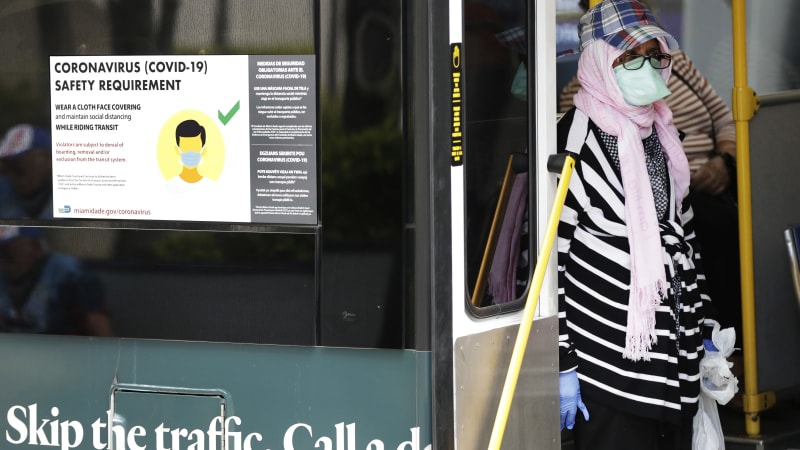Some transit agencies turn to Uber as ridership drops during coronavirus crisis
https://ift.tt/3bj847T

U.S. cities that have idled mass transit during coronavirus lockdowns are turning to an unusual partner to get essential workers to hospitals, warehouses and factories: ride-hailing company Uber.
Long criticized by officials in large U.S. cities for siphoning off transit riders and clogging up streets, some less-dense cities with reduced transit ridership are now turning to the Silicon Valley-based company to fill transportation gaps.
A handful of transit agencies are paying Uber and subsidizing rider costs during the pandemic to offer transportation at off-peak hours or in less busy areas.
Some give monthly bus-pass holders a limited number of Uber rides, others cover the entire cost for regular Uber rides to and from essential workplaces.
The model makes sense financially, as cities are able to offload insurance and fuel costs associated with maintaining nearly empty bus routes to Uber and its drivers, according to interviews with three transportation officials.
“A bus costs around $150 an hour to operate and you might have a route with only five boardings an hour. I’d rather move that bus to a corridor with 40 boardings an hour,” said Alice Bravo, director of transportation and public works for Miami-Dade County, which offers fully subsidized Uber and Lyft rides along the routes of nine bus lines that have been suspended at night.
The new partnerships come at a time when Uber is grappling with a slump in demand across the United States, its largest market, due to stay-at-home orders. Data from analysts and interviews with drivers suggest trip requests in some cities were down by as much as 80% in April.
While an Uber spokesman said the initiative was not a significant revenue stream compared to Uber’s pre-coronavirus business, it underscores the company’s ambitions to expand further into the public transportation sector.
Uber currently integrates transit information from more than a dozen cities worldwide and allows passengers in Denver and Las Vegas to purchase transit tickets through its app.
In its latest initiative, Uber is working with transit officials in Miami-Dade County; Indianapolis, Indiana; Livermore, California; Des Moines, Iowa; and Central Midlands, South Carolina.
Transit ridership has plummeted around 70% in most U.S. cities during the virus outbreak, forcing route reductions and less frequent service. Systems have also grappled with staff shortages as many operators and maintenance workers have taken medical leave to quarantine.
“As we were considering how to balance our resources, we had some areas that we wouldn’t have been able to service anymore, so we started talking to Uber,” said Luis Montoya, chief planning officer at Des Moines Area Rapid Transit (DART).
While ridership decreased by up to 90% on some routes, Montoya said, DART noticed that many of those still commuting were going to work at hospitals, manufacturers and grocery distributors. In collaboration with local companies, the agency created a voucher system for Uber and local taxi rides on fixed routes to designated businesses.
Indianapolis officials set up a similar system after Uber reached out. Essential workers had to register for the service and for the price of their monthly transit pass can now book one daily Uber round-trip to and from work.
The service, which started on April 23, is also allowing the city to gather valuable data on transit gaps, said Inez Evans, the chief executive and president of IndyGo.
Evans plans to continue supplementing some routes with Uber even after the crisis, saying that fixed bus lines made sense for the most frequently used routes but were not efficient in less traveled areas. IndyGo is evaluating how to structure its Uber program in the long-term.
Related Video:
Auto Blog
via Autoblog https://ift.tt/1afPJWx
May 7, 2020 at 09:43AM
